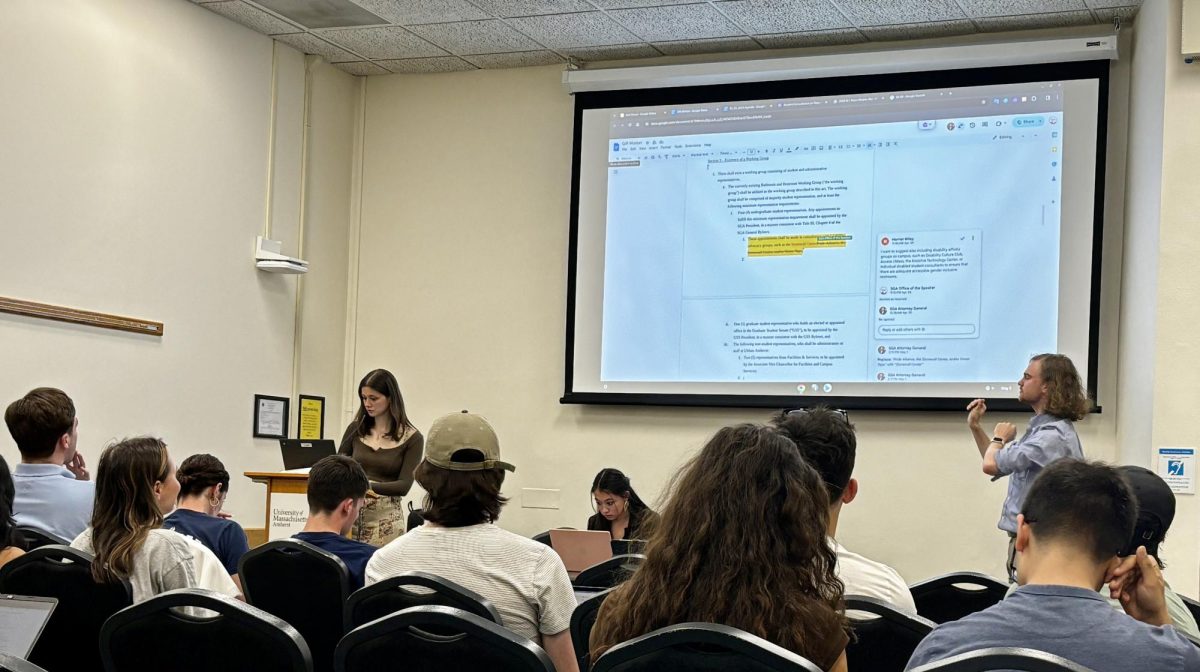Financing an education is an issue of tremendous concern for the majority of students. Add to that concern about the outrageous cost of books each semester and you begin to wonder whether that little piece of paper, which holds so much societal weight by declaring degree credentials, is worth the accrued credit card and loan debt.
Students begin to wonder if they need every book for every course, how hard it would be to share their books, and whether or not they should bother to buy a book they may not read anyway.
Student Government Association President Eduardo Bustamante and his colleagues have proposed a book-borrowing system to save the poor student from one burden of generally unbearable educational costs – fabulous. Except, what about the majors who enjoy reading?
Call me a nerd, but I get excited by the covers of books, the smell of books, the ideas in books, the power of understanding and owning books. Books evoke powerful emotions in me – when I pick up a weathered favorite, I remember a phase of my life.
As an English and political science double major, the majority of my time is spent reading and writing about readings. The syllabi for my courses contain classics, anthologies and political readings, the majority of which will be relevant for decades to come, but it is not just the humanities for which course books remain a valuable wing of one’s personal library.
My father, a doctorate of mathematics, continually draws from his reserve of undergraduate and graduate level mathematical texts [from the 1960s and 70s] for discussions and impromptu lessons. Recently, he opened these archives to my brother, a mathematics and physics major at Worcester Polytechnic Institute, and his books continue to be useful 30 years after purchase.
The only books bought for courses that I have not kept for my personal library were textbooks for two required science-based general education courses. That said, admittedly, my subjects are not as time sensitive as the new or technology-based fields. It is these fields that perhaps would benefit from Bustamante’s proposed rental-system.
However, for those of us in majors that often require books to be purchased from alternative sources – such as the myriad of small local bookstores – the additional cost applied to our student bills would actually create an added pecuniary stress. If this fee were optional, it is unlikely to raise the $800,000 that the University receives each year from Follet.
Besides unanswered questions regarding how much the proposal would actually save students, what shape the books would be in, what percentage of students this would benefit, how this would affect the library (really, isn’t the foundation of a book-borrowing system rooted in a well-funded, updated, superb library collection?), there is momentous assumption that the University could dependably organize this effort!
The rental company would require students to use their UCards to access the rental-system, which would then access the student’s SPIRE information to ensure that students purchase the correct textbooks.
This creates two new problems: the added stress to the miserably unreliable SPIRE system and the possible distribution of private student information (student identification and social security numbers as well as financial aid and administrative data) to the lending corporation. Since SPIRE can’t handle the responsibilities it currently carries for the University, how can we tack on one more enormous burden and expect the University to function on any level?
Furthermore, as our University struggles to stay in the black, the loss of Follet’s $800,000 deposit to our budget (part of their contract, which in turn generates a $6 million-a-year revenue for their pockets) will hurt. Which University program will that 800,000 be cut from? Unless the rental-fee (which would have to be at least $100 per semester) were mandatory for all undergraduate students, it is unlikely this loss would be made up.
Bustamante wants students to be aware of options and potential savings, which is a great sensitivity in a leader, but why not suggest that students purchase textbooks online? The World Wide Web has provided a plethora of opportunities to save on books as well as sell used texts. Students who do not use the Internet to buy and sell should consider their book expenses as part of their educational cost. A simple budget-appeal on your financial aid form to include abnormally high textbook costs (easily proven through receipts) would up the amount students can borrow in loans – and sometimes even increase their opportunities for increased federal, University or private financial aid [non-loan aid].
The proposal inflicts upon an already beleaguered academia the notion that books are not worth buying.
There are high costs to higher education; unfortunately, a book-borrowing system is not the ultimate answer.
S.J. Port is a Collegian columnist.






